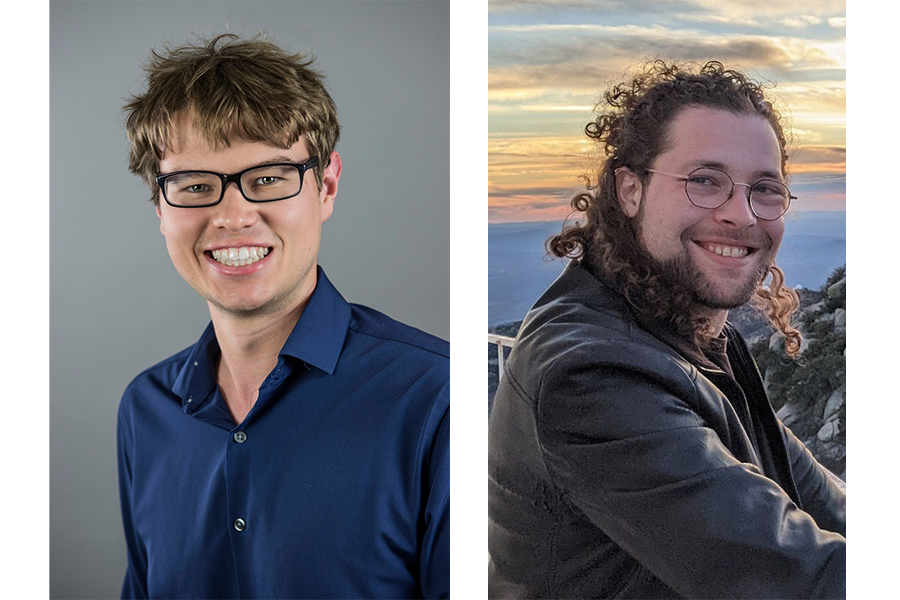Events
Events Calendar
Michel Janssen on Oppenheimer
Thursday, July 13, 2023, Noon through Thursday, July 13, 2023, 1 p.m.
B20 Tate/remote location (link in full event details).
Ahead of the July 21 release of Christopher Nolan's 3-hours drama "Oppenheimer", Michel Janssen prepared a presentation about Robert Oppenheimer's youth, participation in the Manhattan project and subsequent Congress hearings.
Join Zoom meeting:
https://umn.zoom.us/j/97841501483
Universe in the Park: Lowry Nature Center
Saturday, July 8, 2023, 8:45 p.m. through Saturday, July 8, 2023, 11 p.m.
Lowry Nature Center
Universe in the Park is hosted by the Minnesota Institute for Astrophysics and area state and local parks.
Representatives of the Institute will present a short (~20 min) outdoor public talk and slide show. Presentations cover a variety of astronomical topics such as: the history of matter, how astronomers "see," and a journey through our solar system. For the 2022 season, talks will be outdoors to ensure they are as safe as possible.
Afterwards, if weather allows, attendees have the opportunity to view the sky through multiple 8-inch reflecting telescopes, operated by the staff and provided by the Minnesota Institute for Astrophysics. Additionally, free star maps (e.g., www.skymaps.com) and instructions are provided. Throughout the evening, audience members are encouraged to ask questions and discuss topics ranging from backyard astronomy to the latest scientific discoveries.
Although a vehicle permit is usually required to enter the parks, the events are free to the public. More about Lowry Nature Center, here.
Universe in the Park: Dodge Nature Center
Friday, July 7, 2023, 8:45 p.m. through Friday, July 7, 2023, 11 p.m.
Dodge Nature Center
Universe in the Park is hosted by the Minnesota Institute for Astrophysics and area state and local parks.
Representatives of the Institute will present a short (~20 min) outdoor public talk and slide show. Presentations cover a variety of astronomical topics such as: the history of matter, how astronomers "see," and a journey through our solar system. For the 2022 season, talks will be outdoors to ensure they are as safe as possible.
Afterwards, if weather allows, attendees have the opportunity to view the sky through multiple 8-inch reflecting telescopes, operated by the staff and provided by the Minnesota Institute for Astrophysics. Additionally, free star maps (e.g., www.skymaps.com) and instructions are provided. Throughout the evening, audience members are encouraged to ask questions and discuss topics ranging from backyard astronomy to the latest scientific discoveries.
Although a vehicle permit is usually required to enter the parks, the events are free to the public. More about Dodge Nature Center, here.
Universe in the Park: Gooseberry Falls State Park
Saturday, July 1, 2023, 8:45 p.m. through Saturday, July 1, 2023, 11 p.m.
Gooseberry Falls State Park
Universe in the Park is hosted by the Minnesota Institute for Astrophysics and area state and local parks.
Representatives of the Institute will present a short (~20 min) outdoor public talk and slide show. Presentations cover a variety of astronomical topics such as: the history of matter, how astronomers "see," and a journey through our solar system. For the 2022 season, talks will be outdoors to ensure they are as safe as possible.
Afterwards, if weather allows, attendees have the opportunity to view the sky through multiple 8-inch reflecting telescopes, operated by the staff and provided by the Minnesota Institute for Astrophysics. Additionally, free star maps (e.g., www.skymaps.com) and instructions are provided. Throughout the evening, audience members are encouraged to ask questions and discuss topics ranging from backyard astronomy to the latest scientific discoveries.
Although a vehicle permit is usually required to enter the parks, the events are free to the public. More about Gooseberry Falls State park, here.
Universe in the Park: Tettegouche State Park
Friday, June 30, 2023, 8:45 p.m. through Friday, June 30, 2023, 11 p.m.
Tettegouche State Park
Universe in the Park is hosted by the Minnesota Institute for Astrophysics and area state and local parks.
Representatives of the Institute will present a short (~20 min) outdoor public talk and slide show. Presentations cover a variety of astronomical topics such as: the history of matter, how astronomers "see," and a journey through our solar system. For the 2022 season, talks will be outdoors to ensure they are as safe as possible.
Afterwards, if weather allows, attendees have the opportunity to view the sky through multiple 8-inch reflecting telescopes, operated by the staff and provided by the Minnesota Institute for Astrophysics. Additionally, free star maps (e.g., www.skymaps.com) and instructions are provided. Throughout the evening, audience members are encouraged to ask questions and discuss topics ranging from backyard astronomy to the latest scientific discoveries.
Although a vehicle permit is usually required to enter the parks, the events are free to the public. More about Tettegouche State park, here.
Workshop: Scientific Ballooning Technologies
Friday, May 19, 2023, 9:20 a.m. through Friday, May 19, 2023, 5:50 p.m.
The workshop will be held Keller Hall rooms 3-180 and 3-176, 200 Union Street, Minneapolis, MN.
Following on the successful format of the last four workshops, the scope of the 2023 workshop includes (but is not limited to) gondola design, experiment-wide data acquisition and control systems, attitude control systems, on-board control software both for the attitude control and for the entire experiment, on-board computer hardware, power systems, telemetry systems, and thermal design and control.
This workshop should be particularly appealing for those who are designing and building hardware, and those interested in synergies between the activities of different ballooning groups. It is intended to provide an opportunity for all hands-on ballooning practitioners, from graduate students to senior investigators, to discuss the technologies we are all using to carry out our scientific investigations.
Full details on the Conference website.
Workshop: 50 Years of Supersymmetry
Friday, May 19, 2023, 9 a.m. through Friday, May 19, 2023, 4:30 p.m.
The workshop will be held in Keller Hall 3-180 (street level)
200 Union Street Se, Mpls
Participation in the workshop is by invitation only. If you would like to participate, please contact ftpi@umn.edu.
Workshop: 50 Years of Supersymmetry
Thursday, May 18, 2023, 9 a.m. through Thursday, May 18, 2023, 4:30 p.m.
The workshop will be held in Keller Hall 3-180 (street level)
200 Union Street Se, Mpls
Participation in the workshop is by invitation only. If you would like to participate, please contact ftpi@umn.edu.
Workshop: Scientific Ballooning Technologies
Wednesday, May 17, 2023, 8 a.m. through Wednesday, May 17, 2023, 5:30 p.m.
The workshop will be held Keller Hall rooms 3-180 and 3-176, 200 Union Street, Minneapolis, MN.
Following on the successful format of the last four workshops, the scope of the 2023 workshop includes (but is not limited to) gondola design, experiment-wide data acquisition and control systems, attitude control systems, on-board control software both for the attitude control and for the entire experiment, on-board computer hardware, power systems, telemetry systems, and thermal design and control.
This workshop should be particularly appealing for those who are designing and building hardware, and those interested in synergies between the activities of different ballooning groups. It is intended to provide an opportunity for all hands-on ballooning practitioners, from graduate students to senior investigators, to discuss the technologies we are all using to carry out our scientific investigations.
For a better idea of the content expected at this event, please check out the previous workshops and presentations, available under the Past Events tab.
| Wednesday, 5/17/2023, Times are CST | Topic / Title | |||||||
| Chair: | Wednesday Morning 1 - Agency Reviews | Presenter | Affiliation | Abstract | ||||
| 0:50 | 8:00 | 8:50 | Breakfast | |||||
| 0:10 | 8:50 | 9:00 | Opening Remarks | Hanany | UMN | None | ||
| 0:20 | 9:00 | 9:20 | NASA Scientific Balloon Program, HQ Perspective | Hams | NASA HQ | Abstract Link | ||
| 0:20 | 9:20 | 9:40 | Updates from the NASA Balloon Program Office | Roth | BPO | Abstract Link | ||
| 0:15 | 9:40 | 9:55 | NASA's Balloon Working Group | Kogut | Goddard | Abstract Link | ||
| 0:15 | 9:55 | 10:10 | BPIRT update | Jones | Princeton | To Be Posted | ||
| 0:20 | 10:10 | 10:30 | Break | |||||
| Chair: | Wednesday Morning 2 - Multi-Purpose Platforms | Presenter | Affiliation | Abstract | ||||
| 0:20 | 10:30 | 10:50 | An update of the CNES stratospheric balloon projects | Dubourg | CNES | Abstract Link | ||
| 0:20 | 10:50 | 11:10 | NASA’s Flight Opportunities Program: Leveraging Flight Tests with Commercial Flight Providers to Advance Science and Technology | deLeon |
NASA Flight Opportunities |
Abstract Link | ||
| 0:20 | 11:10 | 11:30 | Panel (Young moderates): GHAPS (Tibor Kremic), BLAST (Erin Cox), SuperBit (Bill Jones), HASP (Chris Groppi/ASU), ESBO (Maier); Laflamme (CSA) | |||||
| 0:20 | 11:30 | 11:50 | ||||||
| 0:10 | 11:50 | 12:00 | ||||||
| 1:10 | 12:00 | 13:10 | Lunch Break | |||||
| Chair: | Wednesday afternoon 1 - Flight Programs | Presenter | Affiliation | Abstract | ||||
| 0:20 | 13:10 | 13:30 | Developing GUSTO within the Explorer program | Walker | UArizona | Abstract Link | ||
| 0:20 | 13:30 | 13:50 | Developing PUEO within the Pioneer program | Vieregg | UChicago | Abstract Link | ||
| 0:15 | 13:50 | 14:10 | What's new in Timmins | Vincent | CSA | Abstract Link | ||
| 0:15 | 14:10 | 14:25 | Esrange Space Center for Scientific Balloning | Abrahamsson | SSC | Abstract Link | ||
| 0:20 | 14:25 | 14:45 | Opportunities for Middle to Lower Stratosphere Flights | Smith | Aerostar | Abstract Link | ||
| 0:30 | 14:45 | 15:15 | Break + Posters | |||||
| Chair: | Wednesday afternoon 2 - Atmosphere | Presenter | Affiliation | Abstract | ||||
| 0:20 | 15:15 | 15:35 | Polar Mesospheric Clouds - potential problems and opportunities for polar balloon experiments | Kjellstrand | ASU | Abstract Link | ||
| 0:20 | 15:35 | 15:55 | Radiative Consideration of Earth’s Stratosphere Modeled with MODTRAN and SAMM | Corlies | Spectral Sciences | Abstract Link | ||
| 0:20 | 15:55 | 16:15 | A Study on the Effects of Ambient Radiation on COTS Balloon-borne Instrumentation | Romualdez | StarSpec | Abstract Link | ||
| 0:20 | 16:15 | 16:35 | The effects of atmospheric scattering on balloon-borne X-ray/gamma-ray observations | Shih | Goddard | Abstract Link | ||
| 0:20 | 16:35 | 16:55 | An update on a balloon Trajectory Control System (TCS) for NASA standard balloons | Yoder | BPO | Abstract Link | ||
| 0:40 | 16:55 | 17:35 | Summary + Discussion (Moderator: Kierans) | |||||
Physics Force in Rochester
Friday, May 12, 2023, 7 p.m. through Friday, May 12, 2023, 8 p.m.
Mayo Civic Auditorium, Rochester, MN
The Physics Force is an outreach program run through the University of Minnesota. Our greatest success is generating an interest in science in K-12 students. We go above and beyond to educate and entertain. The Physics Force does performances on a grand scale to bring excitement and wonder to the thousands of students who attend our shows every year. The show lasts approximately one hour and is appropriate for people of all ages.
Event is free and open to the public, but registration is required.
School News
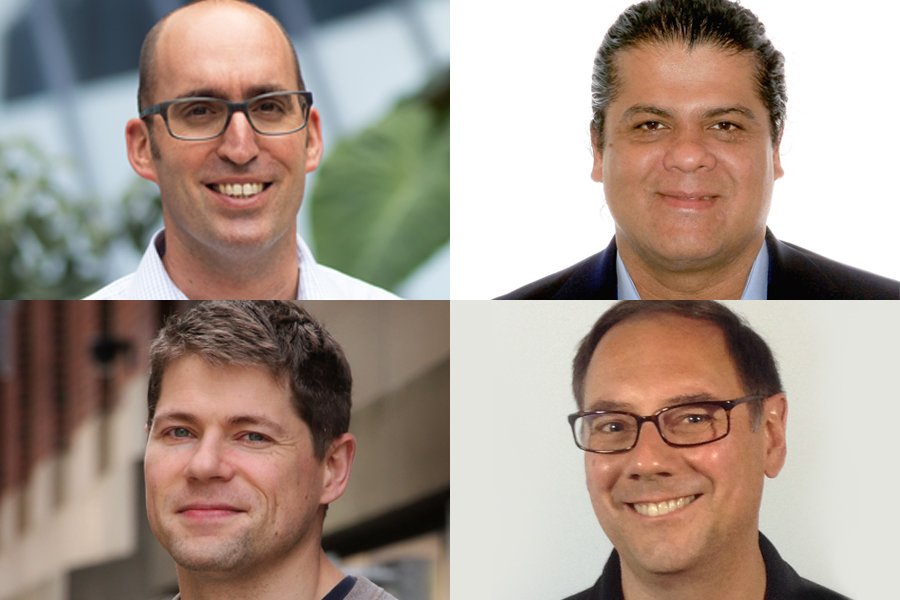
Four new CSE department heads begin in 2024-25
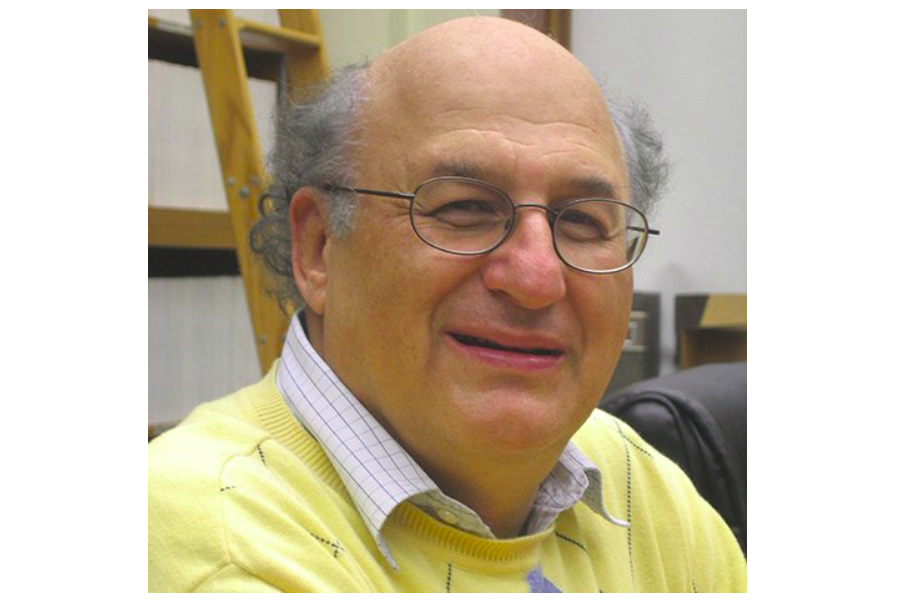
Shifman named Regents Professor
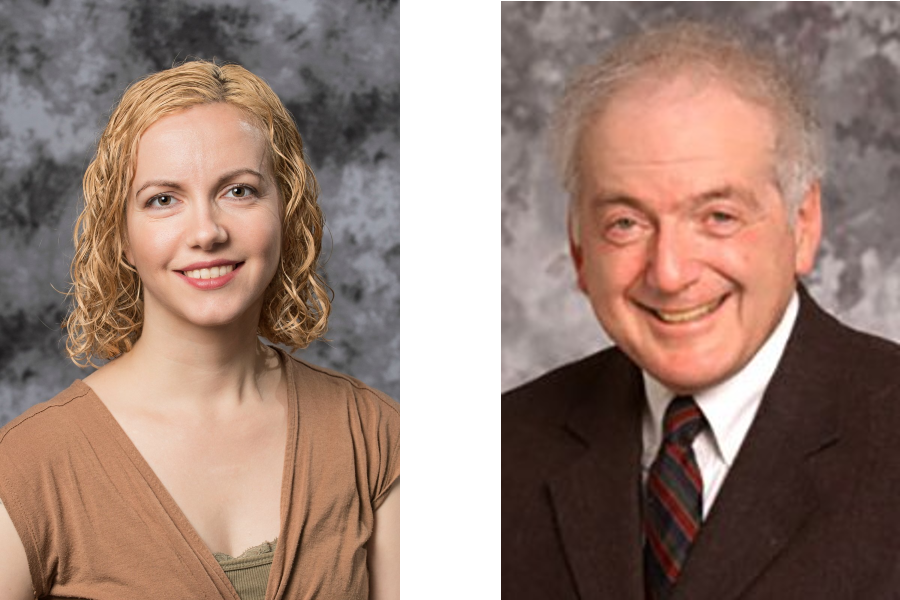
Glesener awarded Allen M. Goldman Faculty Fellowship
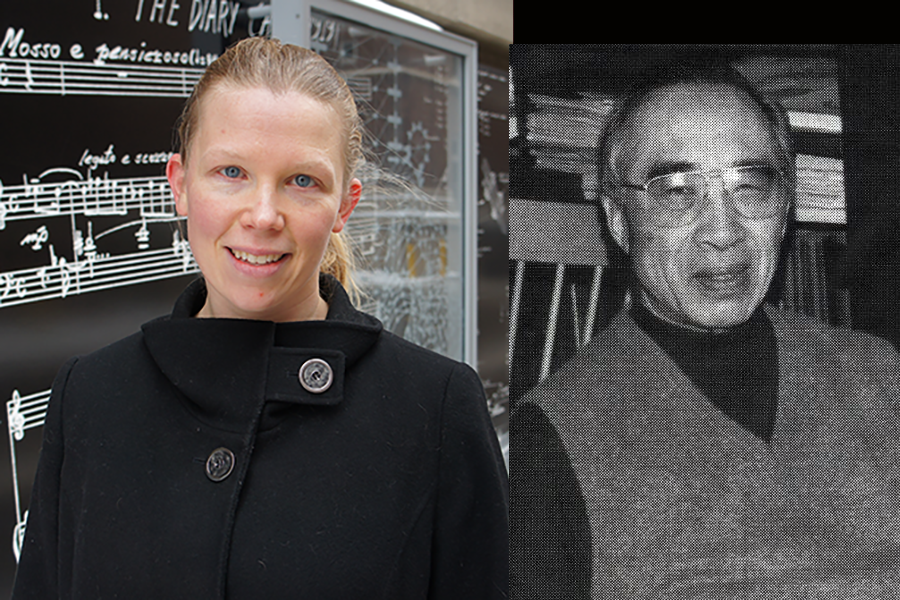
Burnell appointed to Tang Family Professorship
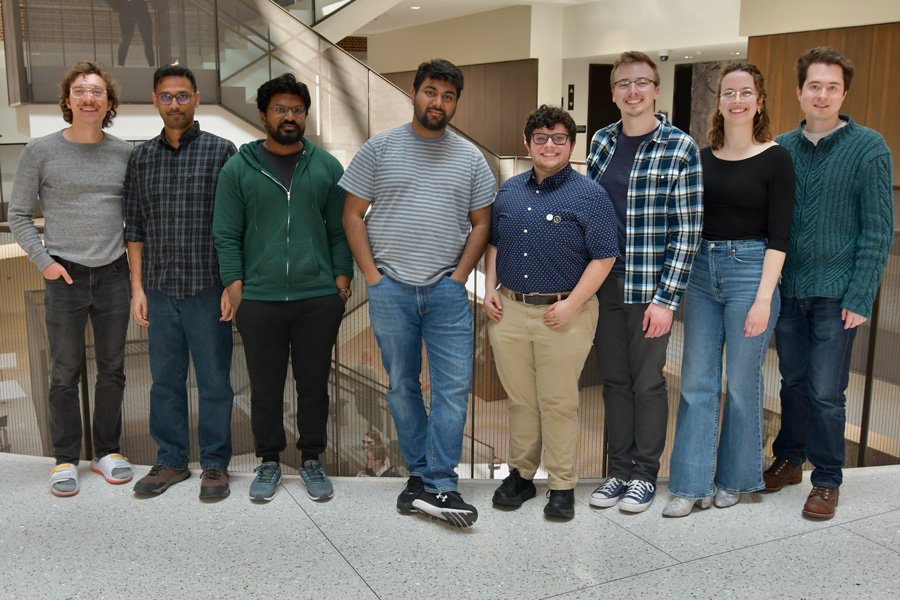
2024 Graduate Awards and Fellowships
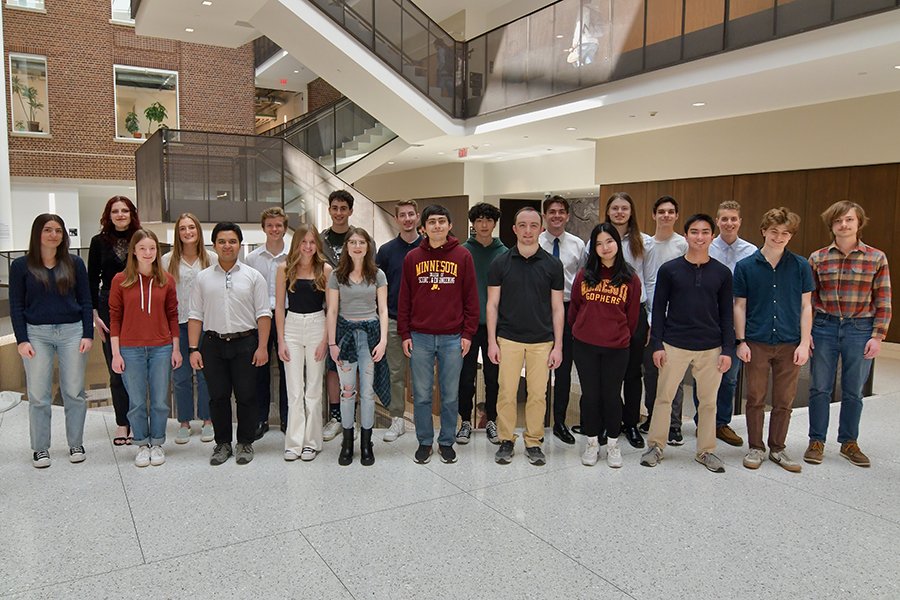
2024 Undergraduate Scholarship Recipients
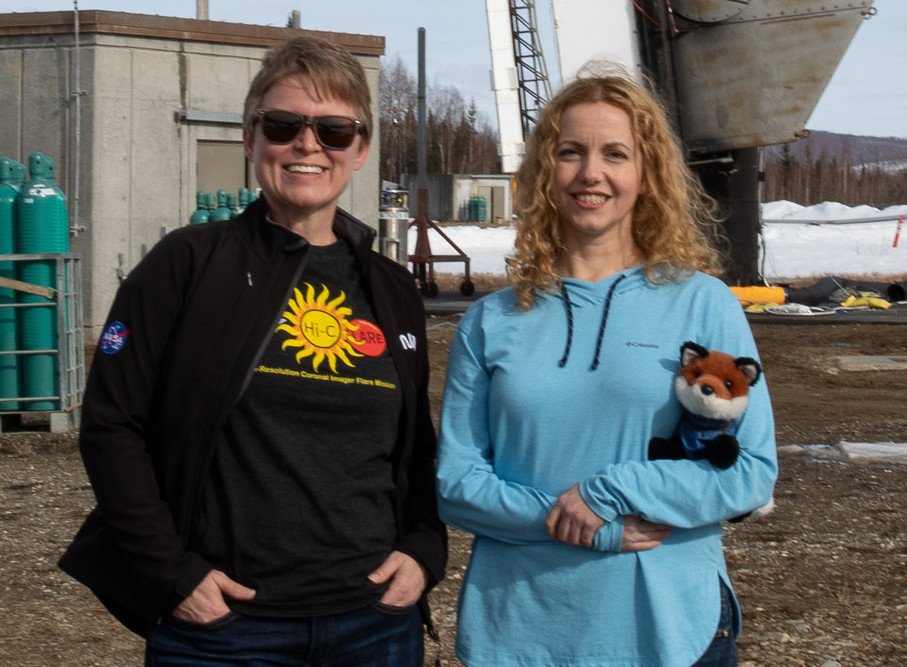
Glesener part of NASA's first solar flare observation campaign
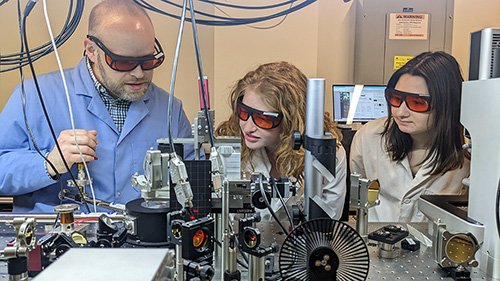
Inside Professor McLeod’s Nano-Imaging Laboratory
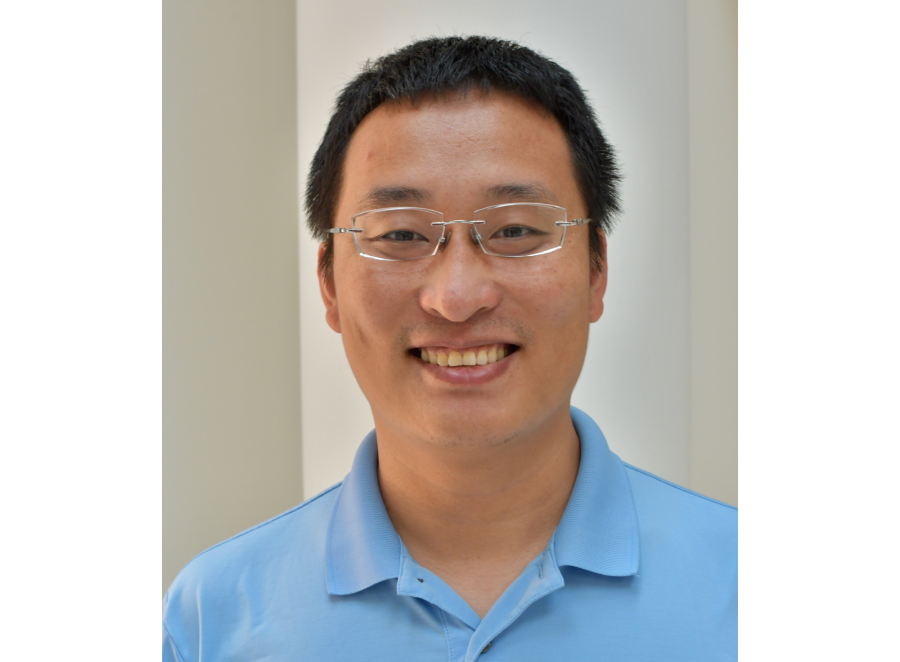
Liu receives prestigious Sloan Research Fellowship for early-career researchers
